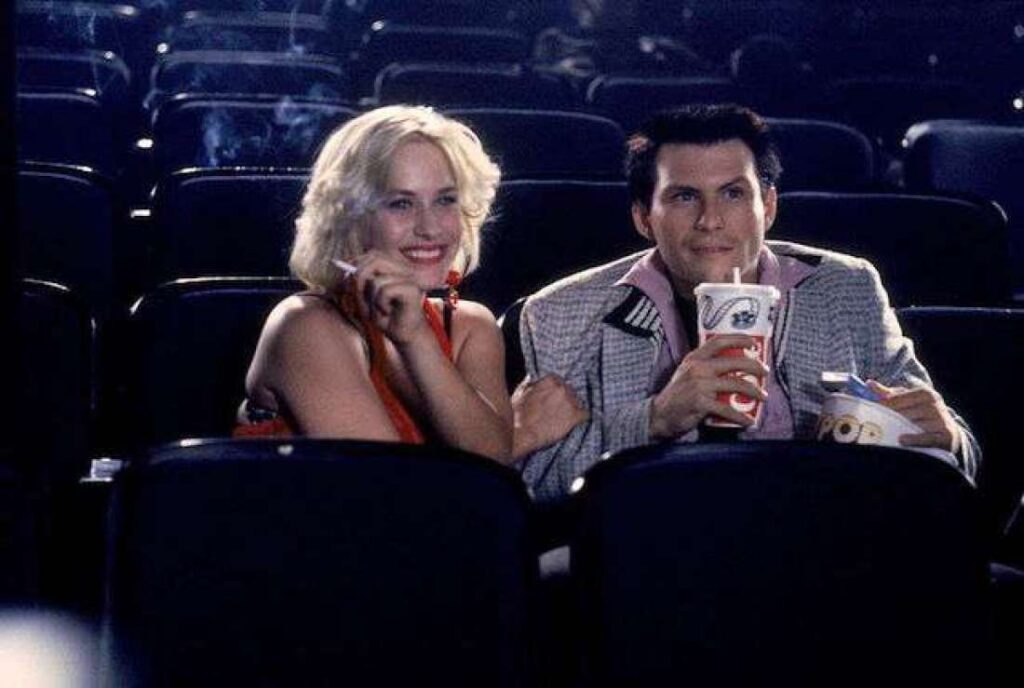“What can you say about a 25-year-old girl who died? That she was beautiful and brilliant? That she loved Mozart and Bach, The Beatles, and me?”
…CUT!
The voiceover narration at the top of Love Story tracks almost as bittersweetly as the exchanges that bring Quentin Tarantino’s Once Upon a Time in Hollywood (2019) to a fading, tragedy-erasing halt. Could Tarantino remake the 1970 romantic drama with witty dialogue and “forever fame”-solidifying Ryan O’Neal and Ali McGraw performances as his next film? Or, perhaps, is he more likely to seek one-upping the latest West Side Storyteller himself, Steven Spielberg, and tackle ‘Romeo and Juliet?’
Once Upon a Time in Hollywood’s “next gen” Austin Butler and Margaret Qualley would surely excel in the titular roles. And if he pitted its bromantic leading duo, Brad Pitt and Leonardo DiCaprio, as rivals this go-around, the Montague and Capulet patriarchs, respectively, Tarantino would guarantee yet another $200 million show at the box office–- one centennial amount for each otherworldly movie star.
On what he has decreed will be his swan song “Number 10,” the 2-time Oscar-winning screenwriter (Pulp Fiction, Django Unchained) is expected to go out with an on-brand bang by the time his yet-announced last picture is framed and in the can. Will he alter history like he is occasionally one to do? He wouldn’t be the first to empower Romeo and Juliet to turn the tables.
But how exactly would he, if given the chance?
Tarantino’s reputation as an “original” aside, the equal-parts plagiarism by way of homage proponent has long flirted with directing someone else’s brainchild (Scream), and has also offered to helm unique takes on already established media (Less than Zero, Casino Royale, Star Trek). Before you ask the obligatory, “what story has been done to a dagger-filled death more than Romeo and Juliet?,” you must first ask yourself this: have we ever seen Tarantino’s version?
Answer—basically. But that hasn’t stopped movie masters from pulling off ultra-nuanced, well-welcomed redundancies in the past. A few years before another bold creative, Baz Luhrmann, dared to color Romeo + Juliet (1996) with glamour and gunfire while sacrificing none of Shakespeare’s hard tongue, an unknown Tarantino sold his True Romance (1993) script for the base $50,000 to fund his two inaugural directorial outings, according to Independent.co.uk: Reservoir Dogs (1992) and Pulp Fiction (1994).
We all know how that gamble paid out.
Despite not being behind its camera, or on-set at all, True Romance may be the most Tarantino movie yet. Top Gun filmmaker Tony Scott directed Christian Slater to essentially perform a feature-length “QT” impression throughout. Slater’s “Clarence” is a Tennessee-purgatorialized midnight movie buff who 1- gets shotgun-hitched to “Alabama” (Patricia Arquette), a call girl, 2- accidentally steals a Jamaican pimp’s (Gary Oldman, you read that right) cocaine, and 3- subsequently flees to Los Angeles—where he unloads brick by brick to Hollywood execs galore. This recipe proved a palpable metaphor of self-commentating proportions for Tarantino. In many ways, True Romance wackily mirrors his own experiences grinding through early ‘90s L.A., where he’d sling the best product he had to offer – movie pitches – to keep both feet planted firmly on coastal ground before liftoff into the cinematic stratosphere.

True Romance’s happy ending – comparable to Taylor Swift’s “Love Story,” her own revisionist ‘Romeo and Juliet’ offering she would fearlessly release 15 years later – was actually more true to Bonnie and Clyde fatal form, per Tarantino’s original vision from his earliest chamber penning. After Scott commissioned a rewrite, the ill-fated-no-more Clarence and Alabama gained a lover’s narrowly unscathed ride off into the beach-met sunset. In later interviews, Tarantino would agree with Scott’s decision. Nevertheless, their benched bloody demise could not help them escape becoming exhibited examples of the “violence glorification” accusations often levied at Tarantino’s greater filmography.
However, lost in the action-packed frays of his always-iconic third acts, True Romance’s climactic chaos included: the love stories that fuel his ferocious fury.
Though Tarantino allowed Inglourious Basterds’ Aldo (Brad Pitt) to speak his self-meditating “this just might be my masterpiece” closer into existence, it’s his sweet and soulful hangout-distracted heist flicks (Jackie Brown), revenge-to-reunion affairs (Kill Bill, Django Unchained) and “brom-coms” (Once Upon a Time in Hollywood), especially, that propel Tarantino’s unparalleled ingeniousness. With this quartet, Tarantino defies “juvenile” labels by writing final denouements with a Fairy Tale-fancying wand rather than an adrenaline-shot syringe for a change.
Maybe the formation of his own family – wife, Daniella (married in 2018); son, Leo (born February 2020); and name-undisclosed second child (born just this month) – on the horizon brought the extra dose of “dad sentimentality” out of him for his lattermost project? That, coupled with Romeo and Juliet (1968) featured above a marquee in the 1969-set Once Upon a Time in Hollywood, possibly stand as ample evidence. He would never let impassioned pitches from die-hard fans turned try-hard essayists guide his hand. Even still, literature’s most influential star-crossed lovers are, at the very least, on his mind enough at this stage in his artistry to appear where you wouldn’t think they belonged at first glance.
If this indeed was QT easter-egg hinting at a forthcoming film, it certainly wouldn’t be the first time he’s done so.
“What can you say about a 25-year-old girl who died? That she was beautiful and brilliant? That she loved Mozart and Bach, The Beatles, and me?”
With Quentin Tarantino the one asking, and you know he would cast himself as the Shakespearean “Chorus” in a heartbeat, chances are she’s not dead at all. She’s either been spared by day-savers so utterly authentic, they may as well have been real-life figures. Or, as a caped-crusading Robert Pattinson recently spoke, she is vengeance – plotting from the unseen shadows that laid the foundation for her certifiably angelic wings to take form in the first place.